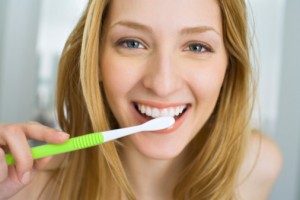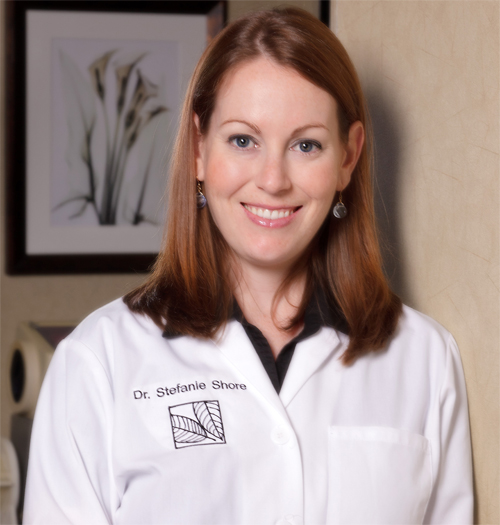 If you are like me, you were raised to believe that avoiding sweets and brushing twice a day was the key to a perfect dental check-up. My mom was not wrong, but it turns out she only knew part of the story.
If you are like me, you were raised to believe that avoiding sweets and brushing twice a day was the key to a perfect dental check-up. My mom was not wrong, but it turns out she only knew part of the story.
During dental school, we studied a lot about the importance of diagnosis and prevention. Since then I have dedicated a significant portion of my continuing education time to truly understanding the causes and prevention of tooth decay. Amazingly, some dental researchers devote their entire careers to studying just that. While I do not want to bore you with all of the details, suffice it to say there is more to the story.
Sweets are not the only culprits.
You might be surprised to hear that starches like bread, crackers, and chips also cause decay. Hidden sugars are also found in many foods and drinks. If you check food labels for words ending in “ose” you’ll discover this. More specifically look for “glucose, sucrose, and fructose”. Starches are made up of chains of glucose that are broken up by enzymes in your saliva into the same glucose as if you had eaten something sweet. When you eat or drink, bacteria in your mouth produce acids that dissolve your teeth. If you have a good amount of healthy saliva, it will neutralize the acids. It can take 30 minutes or longer for those acids to be neutralized and your mouth to a normal state. How can you enjoy life without increasing your risk of tooth decay? Eat sweet and starchy foods with meals rather than as snacks. Never suck on something that causes decay. Eat that bag of candy quickly rather than popping one piece in your mouth every 20 minutes. Avoid slowly sipping on sugar-containing beverages or fruit juices. Instead, drink them over a short period of time to limit the time the teeth are exposed to these decay-causing beverages. Sodas are especially worrisome because they contain sugar and carbonic acid which leads to the demineralization of the teeth. Lastly, avoid snacking on foods that stick to your teeth and continue to release sugars over time such as dried fruit, sticky candy, and starchy foods.
Saliva – More is better.
Approximately 20% of Americans suffer from a condition called dry mouth (xerostomia). Besides causing discomfort, dry mouth is a leading cause of tooth decay. Healthy saliva contains many components that protect against decay. It contains calcium, phosphate, and fluoride – important minerals that prevent acids from dissolving your teeth in the process of decay. It also contains proteins and fats that form a protective coating on the teeth that helps to prevent acid attack. Saliva also contains buffers that neutralize acid. Lastly, saliva has antibacterial substances and immune factors that help prevent decay. Dry mouth is caused by many medications, genetics, radiation treatment in the area of the mouth, and some systemic diseases such as Sjogren’s Syndrome. What can be done? There are some medications that can improve salivary flow. Drinking frequent sips of water, sucking on ice chips or sugar free mints and chewing sugarless gums can help stimulate saliva. Xylitol is the best natural non-sugar sweetener. It can actually help prevent decay. Special products such as artificial saliva and toothpaste for dry mouth may help. If you suspect you or a loved one suffers from dry mouth, I would encourage you to schedule a visit with your dentist right away. Ideal prevention and frequent dental check-ups are critical for anyone with dry mouth.
More bugs equals more decay. Did you know we are not born with the bacteria that cause dental decay? Babies are infected with decay causing bacteria, usually by a parent or caregiver. Researchers have discovered that people with higher levels of certain types of bacteria get more decay. In my office we have an ATP meter (CariFree meter by Oral Biotech) that will allow us to measure these bacterial levels with a simple swab test. The good news is that there are prescription rinses that will bring bacterial levels down to a healthy range.
Decay prevention in 2015 – the rest of the story.
Decay is really a process of acids which are created by bacteria dissolving the teeth. Sophisticated dentists will help you prevent decay through CAMBRA – Caries (decay) Management by Risk Assessment. Your individual needs are considered before recommendations are made. Modern decay prevention includes:
Low risk patients:
You have low risk for new decay if you have not had decay in several years, you brush and floss well, have a normal saliva and do not have exposed roots from gum disease. Decay recommendations for you are fairly simple:
- Smart eating as described above
- Brushing two to three times per day with fluoride toothpaste
- Daily flossing
Moderate, high, or extremely high risk patients:
For those with higher risk factors such as recent decay, dry mouth, poor ability to brush and floss, or exposed roots, ideal prevention includes the above plus some or all of these:
- Bacterial testing with antibacterial rinses to lower bacterial counts if needed
- Professional fluoride varnish applications 2 to 4 times per year
- Remineralizing pastes that contain calcium, phosphate and fluoride such as MI Paste or Clinpro 5000. These are available by prescription only.
- High strength fluoride toothpastes either brushed on or applied with custom tray
- Xylitol gum or mints 6-10 grams per day divided into 4 to 6 servings for adult patients
- Baking soda rinses to help neutralize acids
Dental restorations (fillings and crowns) are a good investment in your health, but even the best restoration can fail if decay occurs in the remaining exposed tooth structure. According to international authority on tooth decay, Dr. John Featherstone, restoring the teeth without lowering the risk for new decay is like putting a new roof on a house that is on fire. Our number one goal as dentists is to help you build the knowledge and develop the habits that will enable your natural teeth to last a lifetime. We are always ready to pick-up where mom left off.



